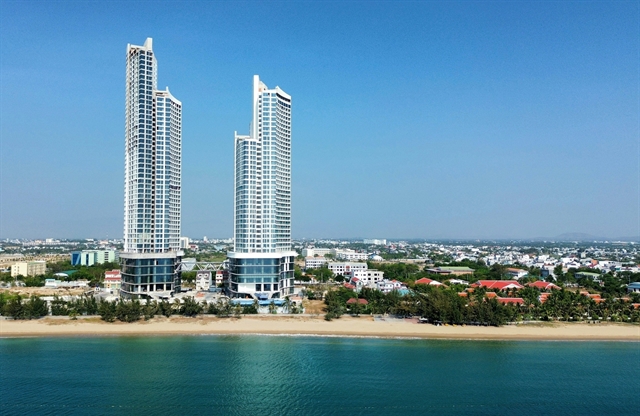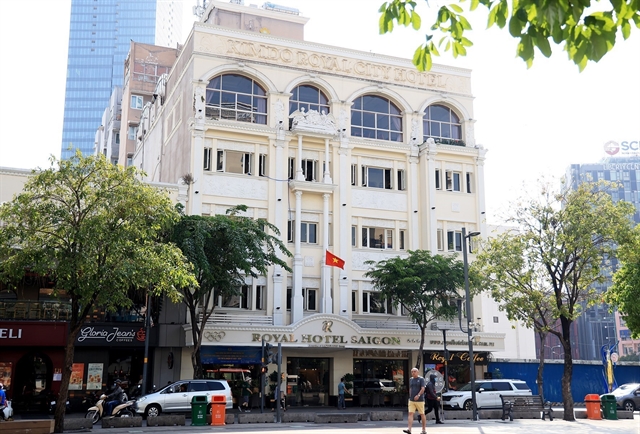Operating cost management is not about cutting indiscriminately. It’s about optimising resources to ensure the hotel operates efficiently, competes sustainably, and maintains long-term profitability.

HÀ NỘI — Việt Nam’s hotel industry is showing strong signs of recovery, buoyed by a resurgence in international tourist arrivals. However, industry insiders caution that beneath the surface of this rebound lie persistent challenges, particularly related to cost management.
The Vice President of the Vietnam Tourism Association and President of the Vietnam Hotel Association, Đỗ Hồng Xoan, said hotels and resorts across the country continue to wrestle with high costs of raw materials, equipment and food, alongside an unstable labour market.
Xoan said that customer expectations around service quality are rising rapidly, placing additional strain on operators.
Balancing cost reduction, service quality enhancement, effective human resource management and increased revenue all while ensuring better income for employees is a complex challenge that businesses must carefully navigate, she told theleader.vn.
A strategic approach to costs
Trần Huy Đức from the National Economics University underscored the importance of strategic financial management in the hospitality sector. He pointed out that hotel operating costs are often fragmented and insufficiently tracked, leading to inefficiencies.
To manage costs effectively, operators must understand their total expenditures over time, classify them by key segments such as accommodation, food and beverage, and other services, and recognise that high-revenue areas often entail high expenses, Đức said.
He emphasised that cost control should not equate to indiscriminate cuts. Instead, hotel managers should focus on classifying, analysing, and optimising costs by comparing actual spending with projections, negotiating with suppliers, enhancing energy efficiency, minimising waste and leveraging automation technologies.
Đức also highlighted that marketing and labour, typically accounting for 30-40 per cent of total costs, must be handled thoughtfully. Rather than reducing staff, he suggested improving workforce productivity and designing effective incentive schemes.
Operating cost management is not about cutting indiscriminately, he said, adding that it’s about optimising resources to ensure the hotel operates efficiently, competes sustainably and maintains long-term profitability.
Lê Minh Thái, representative of the Pullman Hai Phong Hotel, echoed the growing consensus within the hospitality sector on the importance of cost optimisation.
He told theleader.vn that hotels are increasingly focusing on digital transformation, automating operational processes, leveraging outsourcing services strategically, adopting flexible pricing strategies, and pursuing environmentally friendly, sustainable business models.
The shift in operating cost structure is an inevitable trend in the current context, Thái said, adding that accommodation establishments need to proactively adapt to these changes in order to maintain business efficiency and move towards stable growth.
He emphasised that investing in advanced technology, developing a workforce capable of adapting to evolving demands, and streamlining operational processes are crucial for navigating the current landscape.
Thái also proposed several practical solutions to reduce costs effectively, including better management of labour and food expenses, as well as implementing energy-saving initiatives.
However, he stressed that cost-cutting measures must be executed thoughtfully to ensure service quality is not compromised. Cost optimisation must be done carefully to avoid diminishing the customer experience, he warned.

Starting at the design stage
Cost optimisation in hotel operations cannot be an afterthought; it must begin at the earliest stages of project development, Lê Bá Hải Siêu, an expert and investor in the 4-star hotel sector, said.
The journey to optimise hotel operating costs should not begin with day-to-day management. It must be seeded from the product design phase, the point at which project feasibility is assessed, Siêu said.
He cautioned that many investors still underestimate this critical stage, saying he has seen too many cases where investors aren’t serious enough, lack proper knowledge, are reluctant to invest upfront, or fail to engage the right experts to build a systematic cost structure.
These early-stage missteps, he warned, can have lasting consequences. Poor planning can result in inflated fixed costs or design flaws that necessitate expensive corrections later, severely impacting long-term profitability.
To address this, Siêu stressed the importance of a structured approach where cost optimisation responsibilities are clearly defined for each department and individual. Goals should be set based on industry benchmarks and the hotel’s specific circumstances, with regular reviews to identify and eliminate inefficiencies.
Crucially, cost-consciousness must become embedded in company culture. He said it should be part of every employee’s daily routine, supported by a transparent system of rewards, accountability and open communication.
Beyond cost-cutting, innovation and strategic thinking are key to sustainable hotel development. He said that successful hotels are those that not only manage costs effectively but also differentiate themselves through creativity and adaptability.
Continuously seeking new solutions, embracing technology and staying responsive to market changes are essential for long-term growth, he said. — VNS




